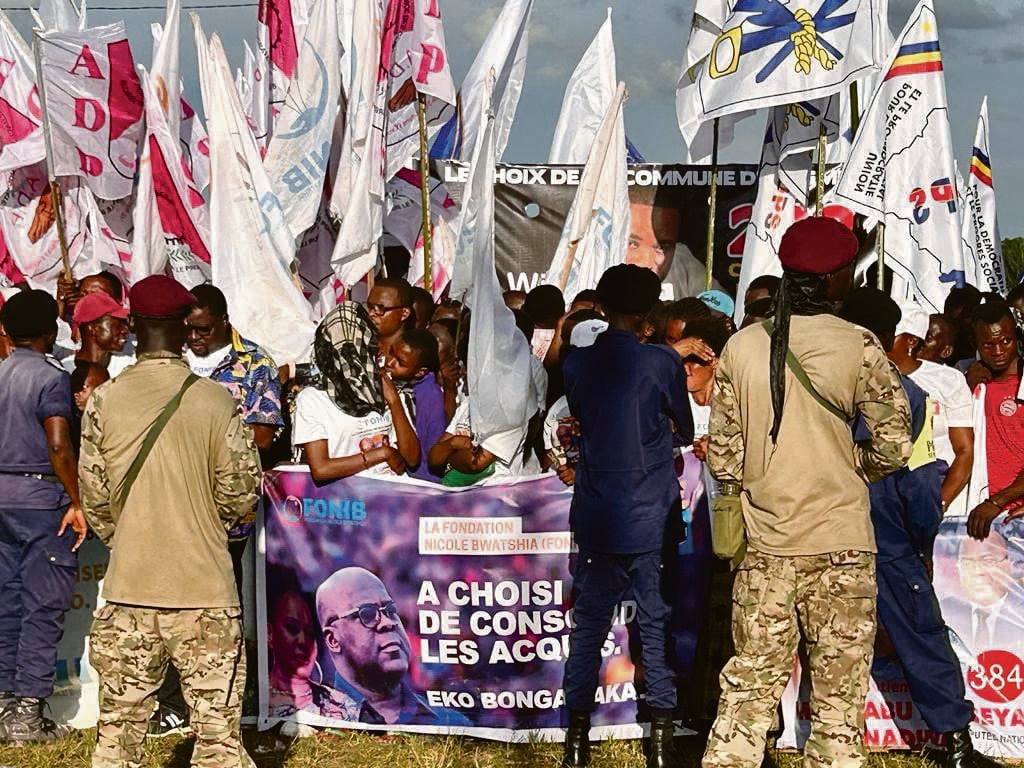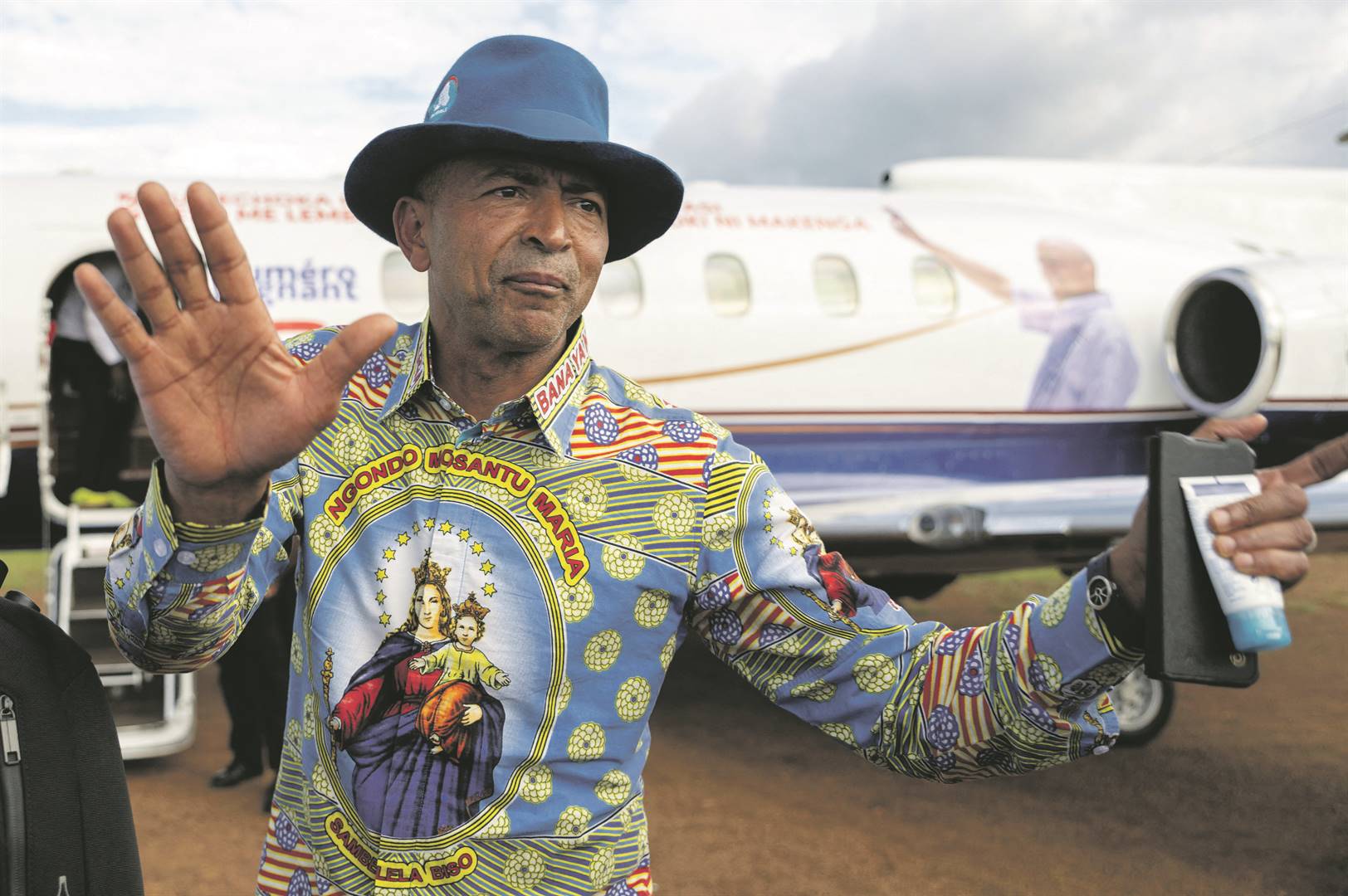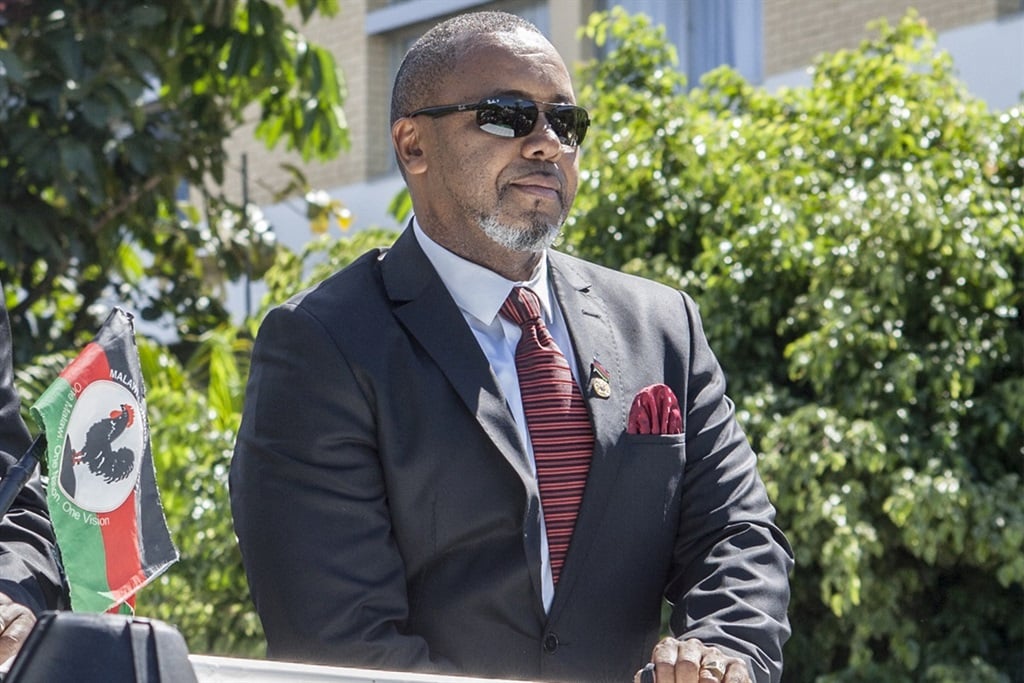
In most countries, once an election date is gazetted, this punctuates the election process and allows for all the relevant players to finalise their own road maps to the day. Even the citizens start making up their own minds about who they will possibly vote for.
Here in the Democratic Republic of Congo (DRC), while political parties were out making their pitches this week, there were still citizens sceptical about whether the elections would actually happen.
READ: DRC braces for its most contested general elections
Presumably because of the history of civil war, coups and only one instance of a peaceful transfer of power, some residents on streets of the capital, Kinshasa, told City Press they would only believe the elections were happening when voting starts.
Voting is scheduled for this Wednesday.
Freedom of choice
Jeremiah Onyembe was one of those sceptics. “I would like to see government allow the people to choose who they really want [to govern]. Some people don’t believe that there will really be elections. They are still waiting for the final word from government.”
He said, if the elections go ahead, he would definitely vote. He said his main wish was to see everyone being allowed to choose who they wanted to run the country.
READ: Super Pact established: Six minority parties to contest as one in 2024 elections
“I hope for the best. My wish is that the people choose who they want,” Onyembe said.
But he was critical of the preponderance of the media hype around the incumbent, President Felix Tshisekedi.
He said:
I don’t believe if you are president [already], you have to be elected again. Allow people to choose who they want. That is the most important issue. I am seeing the pictures of the president everywhere, but I want to see pictures of other candidates, to allow them to do what they have to do to get elected.
The gripe about the election posters was a reference to the fact that Tshisekedi’s face is plastered everywhere. He is on every small flag, big poster and huge banner, whereas his opponents’ faces can hardly be spotted, especially in Kinshasa.
Raging civil war
Tshisekedi was elected five years ago and is working on securing a second term to continue running one of Africa’s largest countries by size.
There are 43 million registered voters in the DRC, although a few million in Goma, Ituri and Kivu in the eastern part of the country will not be able to exercise their right to vote due to the civil war that is raging there between government soldiers and several rebel groups.
READ: Rapule Tabane | Mbalula is a youth leader who failed to grow up
Not only are those citizens disenfranchised, the humanitarian situation there is out of control, with hundreds of thousands of people starving and living in refugee tents, and families separated and displaced.
The war in that region has been raging for years and the peacekeeping by the UN’s Organisation Stabilisation Mission in the DRC (Monusco) has not succeeded in containing it and protecting civilians.
Some Congolese have asked for the Monusco peacekeepers to leave because they have failed in their core mission, while others feel they are too close to the rebels wreaking havoc in the country.
Tshisekedi is seeking a second term to deal with insurgency and has accused his opponents of being accomplices in the war against his homeland.
READ: Rapule Tabane | When Africans mistrust Africans
In his first term, the president introduced free schooling and free healthcare for pregnant women at public health facilities. In total, there are more than 45 000 candidates vying for seats in the local, provincial and national legislatures.
Formidable opponents
Tshisekedi faces opposition from more than a dozen presidential hopefuls, among them Nobel peace prize laureate Denis Mukwege and the man who nearly defeated him the last time, Martin Fayulu,
His most formidable opponent is Moïse Katumbi, a mining mogul and the former governor of the Katanga province. Katumbi is a wealthy entrepreneur who owns one of Africa’s top football clubs, TP Mazembe.
Katumbi has been drawing big crowds to his rallies but has had to defend his right to contest the polls after some in the governing party, the Union for Democracy and Social Progress, accused him of being Italian, despite having been a provincial governor.
READ: SA pressurised to decide how to handle impending Putin visit
On Wednesday, a rally Katumbi was addressing at Moanda, a stronghold of the president, had to be cut short after violence erupted. Live shots were fired and several people were injured.
Katumbi has promised to end the civil war in the east of the country and set up a special fund to address development in the area.
Besides the war and its humanitarian devastation, the voters also spoke about the high crime levels, poor roads and the weak local currency. The Congo franc is struggling against the US dollar, which is commonly used in business transactions. Its value has fallen by about 15% in the last few months.
Second chance
The good news for Tshisekedi is that some of his compatriots are prepared to give him a second chance. They blame the people around him for the country’s governance failures.
The main thing is not our president but the people working with him. I am talking about the minister in charge of security,” said Rifika Kabogelo, a Kinshasa resident, speaking through an interpreter.
Kabogelo added:
He is not doing a good job; as well as the general in charge of Kinshasa – he is not doing a good job because, since he came, we can see there is lot of banditry in Kinshasa. Police officers are not able to work properly to start arresting those people. So those people are not helping the president. I am asking the president, when he takes [up] the second term, to take out the generals who were working with [former president Joseph] Kabila to put new ones [in their place] and maybe we can get new hope.
A scooter driver, who makes money by transporting people around the city, echoed the same sentiments, adding that Tshisekedi should be given another chance.
“We are happy that the elections will happen. Before, elections used to mean trouble. But now you can see that there are Tshisekedi’s people on one side and the Moïse Katumbi people on the other side [co-existing].
“Right now, there is peace. But now we want to see change. They must start acting on their promises [from the last election]. I want to say to president Tshisekedi that the people around him are not giving him good advice. The roads here are bad. When it rains, you can’t go anywhere.”
He also complained about the value of the franc:
The dollar is going up and up. When the president goes for his second term, he must think about us, the people, first, before he looks at his own people.
Election readiness questioned
Nana Bilonda, an independent candidate contesting for a municipal seat, voiced her concerns about the Independent National Electoral Commission’s readiness for the polls. Bilonda claimed that many people had not obtained their voting cards.
“I have been going around and the people are complaining to me [about the cards]. The electoral cards they are giving people are not of good quality. Most of them have been deleted already. The people are going to the place where they are supposed to have the new cards, but it is taking too long,” Bilonda said.
READ: Phala Phala: One year after Fraser’s revelations, we have more questions than answers
“They are not getting the cards despite spending the whole day there. So it is very difficult for us. We can’t see how they [the commission] are going to do that election. Because if you don’t have the card, you are not able to vote. The commission must solve this because it is a big problem,” concluded Bilonda.
A hawker in Kinshasa said her voting card had been deleted. “My voting registration has been deleted and I am struggling to get a new one. I can’t leave my business here [selling corn cobs and fried banana] to go and register, because they make us wait. I want to vote.”
READ: Zuma’s ANC exit? Analyst casts doubt on departure rumours
Another hawker, who only identified herself as Emily, said:
I am struggling because we usually buy this stuff [the clothes we sell] in US dollars, but we are struggling. My husband gets paid in local currency, but we have to pay rent in dollars.
“The business is also bad because people are no longer buying from us. Things are bad,” she said.
The elections will be monitored by observers from the Southern African Development Community and the US. The EU observers withdrew after alleging that the DRC authorities were demanding access to their electronic equipment.
The results are expected on 31 December.





Recent Comments